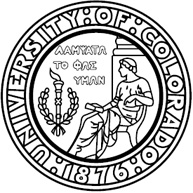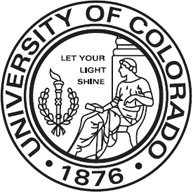Policy 14.A: Use of the University Seal
14.A.1 Official Seal
(A) The official seal is a device for lending authenticity to documents which emanate from the university, especially in its corporate capacity. This seal is used primarily on diplomas and official transcripts, certificates of completion for foreign students, written agreements and contracts, Regents publications and invitations, honorary degrees and awards, certification of board actions, and other official documents that have been issued on behalf of the university. This seal also appears on the president's chain of office, the university mace, commencement programs, Regents regalia, Regents web site, and standard stationery items for the Regents.
(B) The Secretary of the University and of the Board of Regents is the custodian of the official seal.
(C) The office of admissions and records on each campus is authorized to use an official seal on those documents requiring authentication and containing information drawn from the official records of that office.
(D) Discretion as to the use of the official seal on other documents rests with the Secretary of the University and of the Board of Regents.
14.A.2 Commercial Seal
The commercial seal may be reproduced on a variety of commercial applications with the approval of the university director of licensing. The commercial seal may also be used internally, in accordance with the University Graphics Standards Manual, for documents, certificates of appreciation, awards, invitations, other similar uses, and on standard university stationery items. If the reproduction of the commercial seal is less than the size of a quarter and/or the inscription is unreadable, the inscription should not be used. (Samples of the seals are included herewith.)
OFFICIAL UNIVERSITY SEAL
COMMERCIAL UNIVERSITY SEAL
History:
- Adopted: April 15, 1949.
- Revised: November 9, 2000; June 18, 2020 (Clean-Up Only).
- Last Reviewed: June 18, 2020.
Policy 14.B: Use of University’s Name and Marks in Advertising and Marketing by External Entities
The use of the university's name and marks in advertising and marketing involving explicit product endorsement is prohibited. The president has the authority, which may be delegated, to approve all other uses of the university’s name and/or marks in advertising or marketing by external entities. The president or the president’s delegate shall adopt guidelines to govern appropriate use of the university’s name and marks in advertising and marketing by external entities.
History:
- Adopted: March 27, 1970.
- Revised: May 19, 2009, April 6, 2017.
- Last Reviewed: April 6, 2017.
Policy 14.C:
Policy 14.D: Authorization to Form and Contract with Nonprofit Corporation(s) for Developing Discoveries and Technologies of the University of Colorado
The president of the university is authorized to form and contract with a private nonprofit corporation(s) established for the purpose of developing discoveries and technology resulting from science and technology research at the University of Colorado pursuant to C.R.S. 23-5-121, so long as such statutory authorization exists.
The president is authorized to make the annual appointments of the institutional members of the board of directors of such a nonprofit corporation. The Board of Regents shall approve these appointments.
The president shall provide the Board of Regents with an annual report detailing the operations of any nonprofit corporation formed under this policy.
History:
- Adopted: April 25, 1996.
- Revised: May 19, 2009, September 9, 2022.
- Last Reviewed: September 9, 2022.
Policy 14.E:
Policy 14.F:
Policy 14.G:
Policy 14.H:
Policy 14.I: Weapons Control
The Board of Regents recognizes that the unauthorized possession of firearms, explosives, and other dangerous and illegal weapons on or within any University of Colorado campus, leased building, or areas where such possession interferes with the learning and working environment of the University of Colorado is inconsistent with the academic mission of the university.
The Board of Regents further recognizes that the Colorado General Assembly, in passing the state laws regarding concealed carry, authorizes qualified citizens to obtain a permit to carry a concealed handgun. The Colorado Supreme Court determined that the Colorado concealed carry laws apply to state institutions of higher education, including the University of Colorado, and that the concealed carry laws do not permit state institutions of higher education to prohibit the lawful carrying of concealed handguns in accordance with terms of the laws. However, the University of Colorado and members of the university community will comply with all state concealed carry laws that prohibit carrying a weapon on university property pursuant to a valid concealed carry permit.
Article 14.B.3 of the Laws of the Regents authorizes the chancellors of each campus to adopt procedures governing the use of university grounds, buildings, and facilities. Regent policy 8.A further recognizes that the possession of firearms, explosives, and other weapons on university premises compromises the safety of the university community.
In recognition of its obligation to both preserve the learning and working environment and to recognize the rights of citizens to exercise their rights under the Colorado concealed carry laws, the Board of Regents authorizes the enactment of rules lawfully regulating the possession of firearms, explosives, and other weapons. The president of the University of Colorado may enact such rules for system administration, and the chancellors of each campus may enact such rules for their respective campus. The carrying of a concealed handgun in accordance with the requirements of the Colorado concealed carry laws shall not be deemed unauthorized by such rules, unless prohibited by existing state statute.
Nothing in this policy limits the ability of the University of Colorado to enter into contracts for access to events or facilities that are not generally open to the public that limit the ability of students, employees, guests, or other visitors to the campus to carry a concealed handgun.
History:
- Adopted: March 17, 1994.
- Revised: September 12, 2012; February 13, 2020; June 18, 2020 (reference to Regent Policy 1.C changed to 8.A); June 21, 2024.
- Last Reviewed: June 21, 2024.
Policy 14.J: Naming University Facilities and Programmatic Units
Introduction
This policy covers the naming of university facilities. This policy also sets forth the university’s naming guidelines for major facilities and programmatic units. (See 14.J.5 for the definition of major facility and programmatic unit.)
The naming of a university facility or programmatic unit contributes to the University of Colorado’s sense of its own heritage and is a significant event in the history of the institution. On occasion, the university seeks to honor the efforts and/or contributions of individuals by offering the naming of programs, buildings, portions of buildings, or other areas on its campuses.
The naming of a university facility or programmatic unit shall not distract from the institution’s values, dignity, integrity, or reputation, nor shall any such naming create a conflict of interest, or the appearance of a conflict of interest, or confer special privileges.
14.J.1 Functional Naming of Facilities and Programmatic Units
(A) Each new university facility and programmatic unit shall be given a functional name that is reasonably descriptive of and will identify the principal activity or purpose of the facility or program. The process for assigning functional names shall be determined as provided by APS 3004 - Functional and Honorary Naming of University Facilities and Programmatic Units.
14.J.2 Guidelines for Honorary Names
(A) Approvals and process for determining honorary names of major facilities and programmatic units.(1) Honorary names for major facilities and programmatic units shall require approval of the Board of Regents to ensure the preservation of the university’s values and reputation.(B) Criteria for honorary names for major facilities and programmatic units.(1) Naming may be offered in recognition of service to the university or in recognition of charitable giving for the benefit of the university.(C) All other honorary naming opportunities are determined by the president, which may be delegated to the chancellors as provided by APS 3004.
(2) When naming a major facility, the facility’s size, location, age and prominence will be taken into consideration.
(3) When naming a university program, the program’s size, stature and maturity will be taken into consideration.
(4) No major facility or program may be named for an elected public official while currently serving in an official capacity.
(5) Corporations and organizations are encouraged to be major donors to the university with opportunities for naming rights. The corporation or organization must have a prominent relationship with the university or the region, a positive image and demonstrated integrity.
(6) Additional criteria for naming major facilities and programmatic units will be determined as provided by APS 3004.
14.J.3 Duration of Names and Changes to or Removal of Names of Major Facilities and Programmatic Units
(A) An honorary name for a major facility is generally assigned to a facility for its useful life. If the facility is substantially renovated, replaced or demolished, the campus vice chancellor for advancement will consult with the honoree or the honoree's descendants, if reasonably possible, to determine whether the naming will be discontinued or if there is an opportunity to continue the naming in the renovated facility, a replacement facility or in another facility. The Board of Regents must approve the continuation of the naming in the renovated or replacement facility or in another facility.
(B) An honorary name for a programmatic unit will generally be attached to a program unless and until the program is substantially changed or dissolved by action of the campus or Board of Regents. If a program is discontinued, the campus vice chancellor for advancement will consult with the honoree or the honoree's descendants, if reasonably possible, to determine whether to discontinue the naming or to continue the naming for a replacement program. The Board of Regents must approve the continuation of naming for a replacement program.
(C) In circumstances where a major facility is named for a corporation or organization in recognition for a charitable contribution and the corporation or organization subsequently changes names or ceases to exist, the duration of the naming will be subject to review by the university.(1) If a corporation or organization changes its name, it may request that the name of the major facility also be changed. If such a request is made, the name will be changed if (a) the change is acceptable to the Board of Regents, and (b) as long as the corporation or organization pays the complete expense of making the change.(D) The university reserves the right to refuse a naming request or to reverse a naming decision should the individual, group of individuals, corporation, or organization after which the major facility or programmatic unit is named or is to be named, be shown to have acted in a way that is counter to values that preserve human dignity or the educational ideals of the university, as provided in regent law and policy, or in the case of a major facility or programmatic unit named after a benefactor, failure to fulfill the terms of the gift agreement.
14.J.4 Implementation and Administration
(A) When a major facility is named for an individual or group, it is expected that there will be suitable ceremonies of formal dedication and that appropriate prominent plaques and signs will be installed and maintained to recognize the individual or group who is being honored.
(B) The president and each campus chancellor shall develop procedures for implementing this policy.
14.J.5 Definitions
(A) Major facilities typically include buildings, building wings, and building additions; any may also include facilities such as recreational fields, plazas, fountains, roadways, walkways, quadrangles or other similar campus infrastructure, as determined by the president and each campus chancellor.
(B) Programmatic units typically include schools or colleges, institutes, and departments; and may also include units such as divisions, degree-granting interdisciplinary units, centers, or other similar operational areas of the university, as determined by the president and each campus chancellor.
(C) Corporations and organizations include entities engaged in business or activities separate from the university.
History:
- Adopted: February 28, 1973.
- Revised: January 23, 1974; May 17, 1984; September 15, 1988; September 10, 1998; and February 10, 2022.
- Last Reviewed: February 10, 2022.






